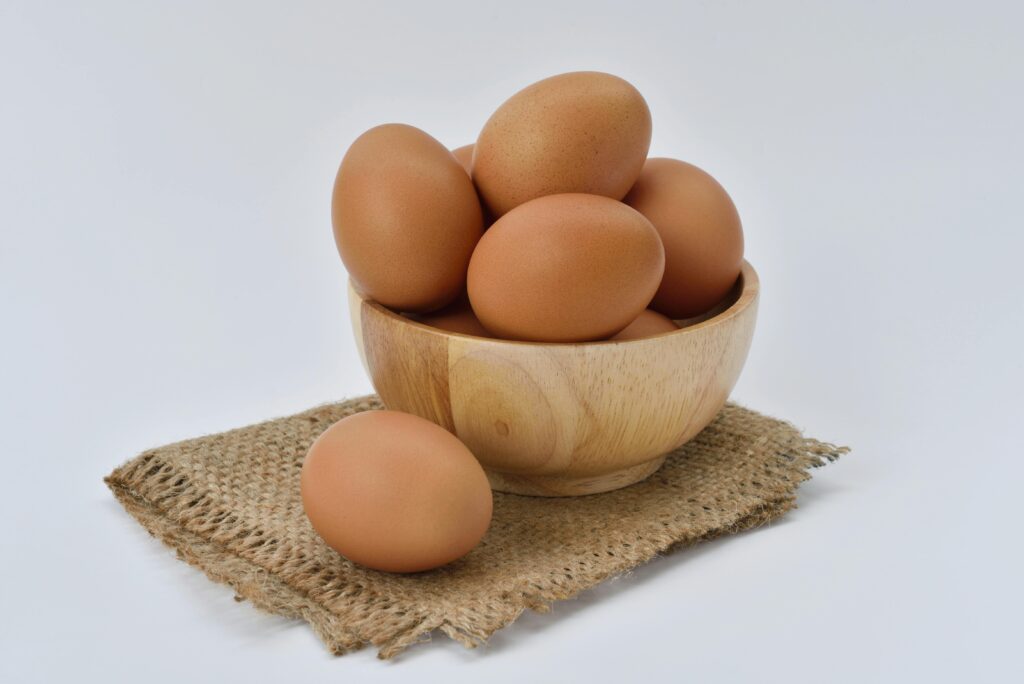
Here’s a guide to selecting the freshest, high-quality eggs:
At the Store:
- Look for the USDA Grade: In the United States, eggs are graded for quality by the USDA (United States Department of Agriculture). The grade mark indicates the interior quality of the egg and the appearance and condition of the eggshell. Here’s a breakdown of the common grades:
- Grade AA: These are the top-quality eggs with very firm whites, high, round yolks, and clean, unbroken shells.
- Grade A: These eggs have very good quality with firm whites, round yolks, and clean shells with minor imperfections. These are the most commonly sold eggs in grocery stores.
- Grade B: These eggs have lower quality with slightly runny whites, flattened yolks, and may have slightly more noticeable shell imperfections. They are typically used for baking or processing rather than for eating fried or poached.
- Check the Julian Date: Every carton of eggs has a Julian date stamped on it. This code indicates the day of the year the eggs were laid. The first three digits represent the day of the year (1-365), and the last digit represents the year (e.g., 1324 would indicate the 132nd day of 2024). The fresher the egg, the better the quality, so choose cartons with a later Julian date.
- Choose Cold Eggs: Always buy eggs from a refrigerated section of the store. Cold storage slows down egg spoilage and helps maintain freshness.
At Home – Inspecting the Eggs:
- The Shell Test: Give the eggs a gentle feel. They should feel smooth and cool to the touch. Avoid eggs with cracked or rough shells.
- The Water Test (Optional): Fill a bowl with cold water and gently place the egg inside. Fresher eggs will sink to the bottom and lie flat on their sides. An older egg may sink but stand on its small end. Eggs that float are likely very old and should be discarded.
- Check the Yolk: When cracking an egg open, a fresh egg will have a yolk that is high and rounded, with the white firm and clear. A flatter yolk or cloudy whites can indicate an older egg.
Additional Tips:
- Buy eggs in quantities you’ll use within a few weeks. Eggs can last for several weeks if stored properly, but fresher is always better.
- Store eggs in their original carton in the refrigerator. Don’t store them in the door compartment of the refrigerator, which is prone to temperature fluctuations.
- Older eggs are still safe to eat, but they may not be ideal for frying or poaching. They can be perfectly fine for use in baking or scrambled eggs.
By following these tips, you can choose high-quality eggs that are fresh and delicious for your culinary creations!tunesharemore_vert
